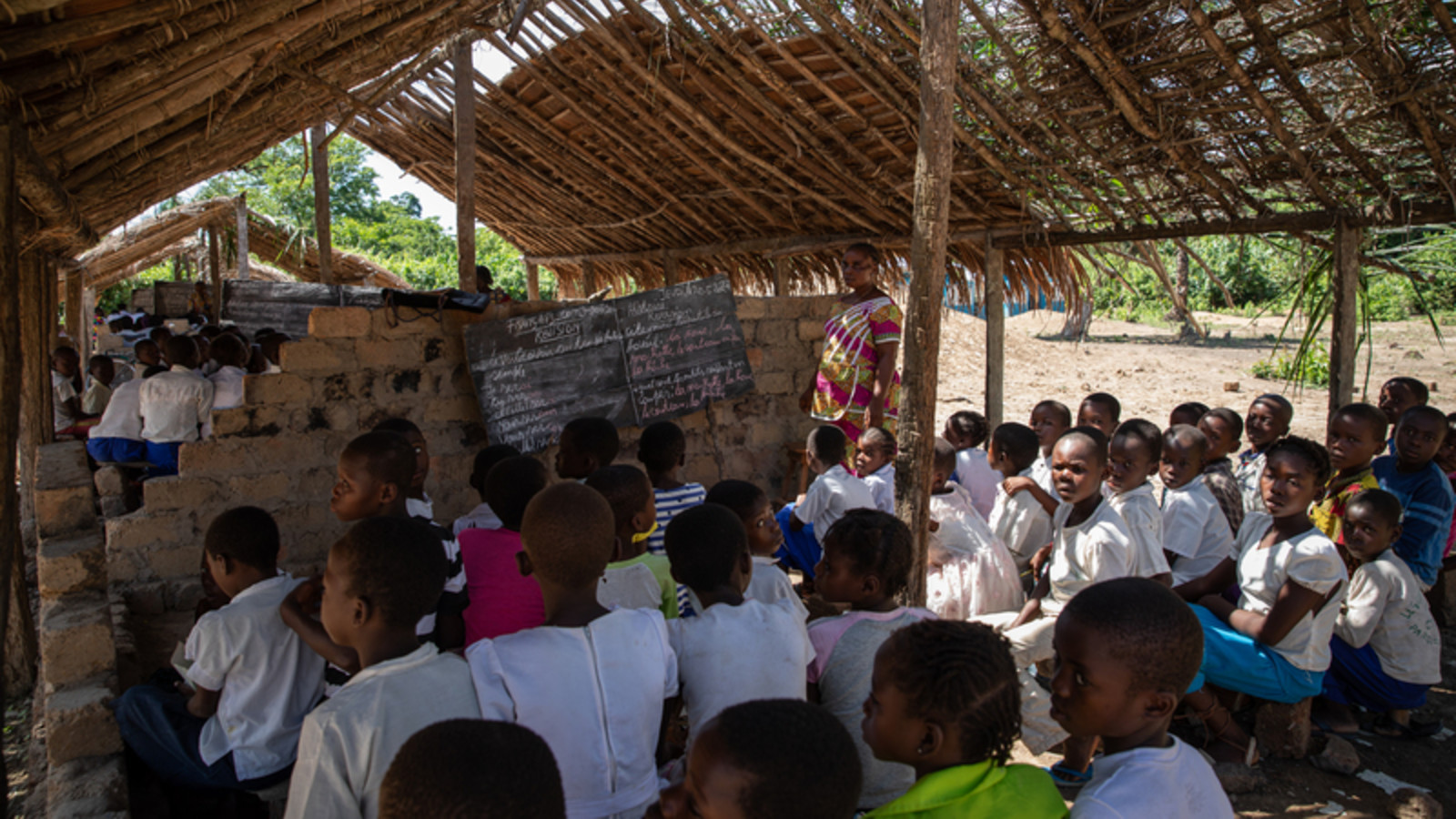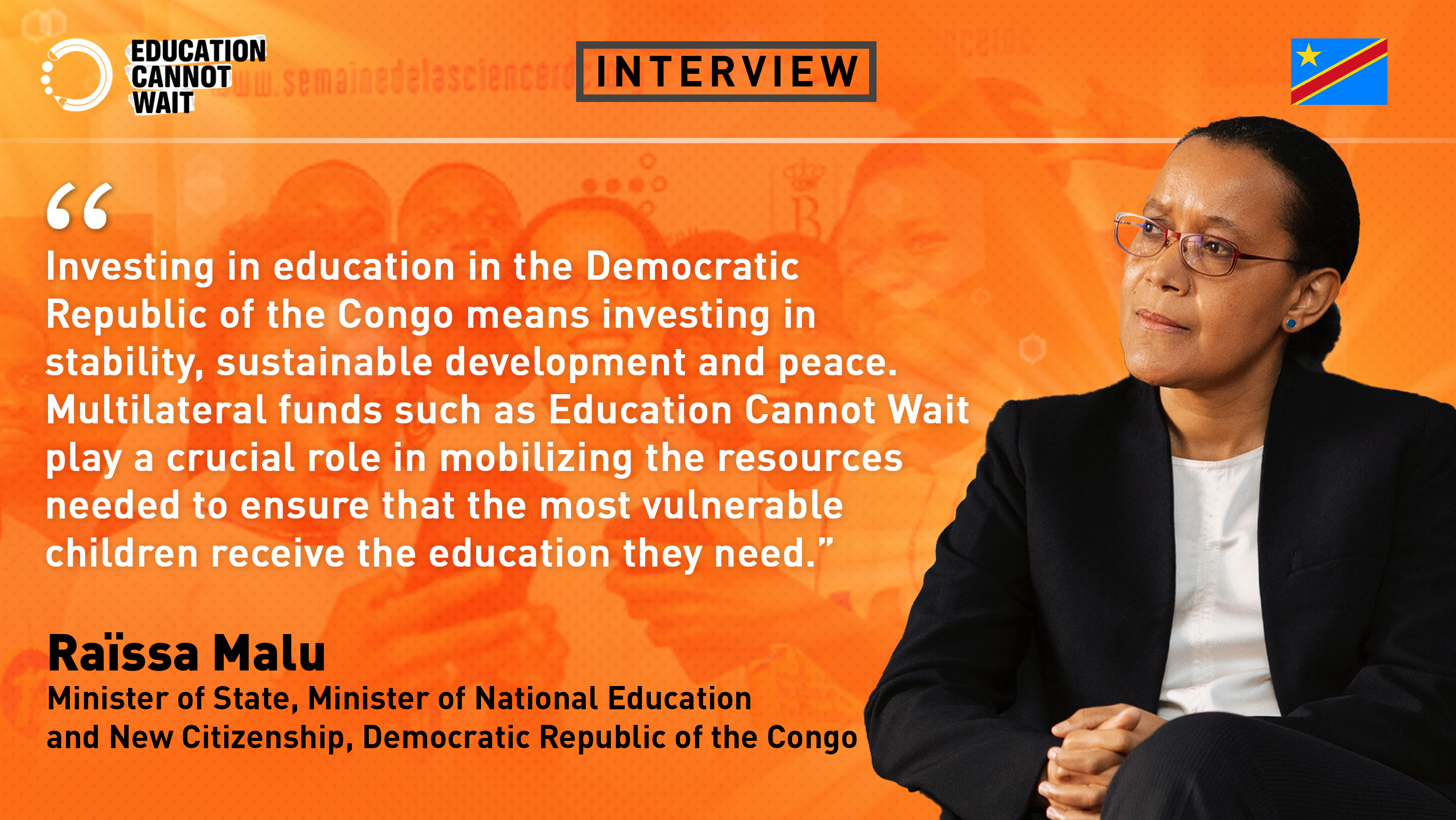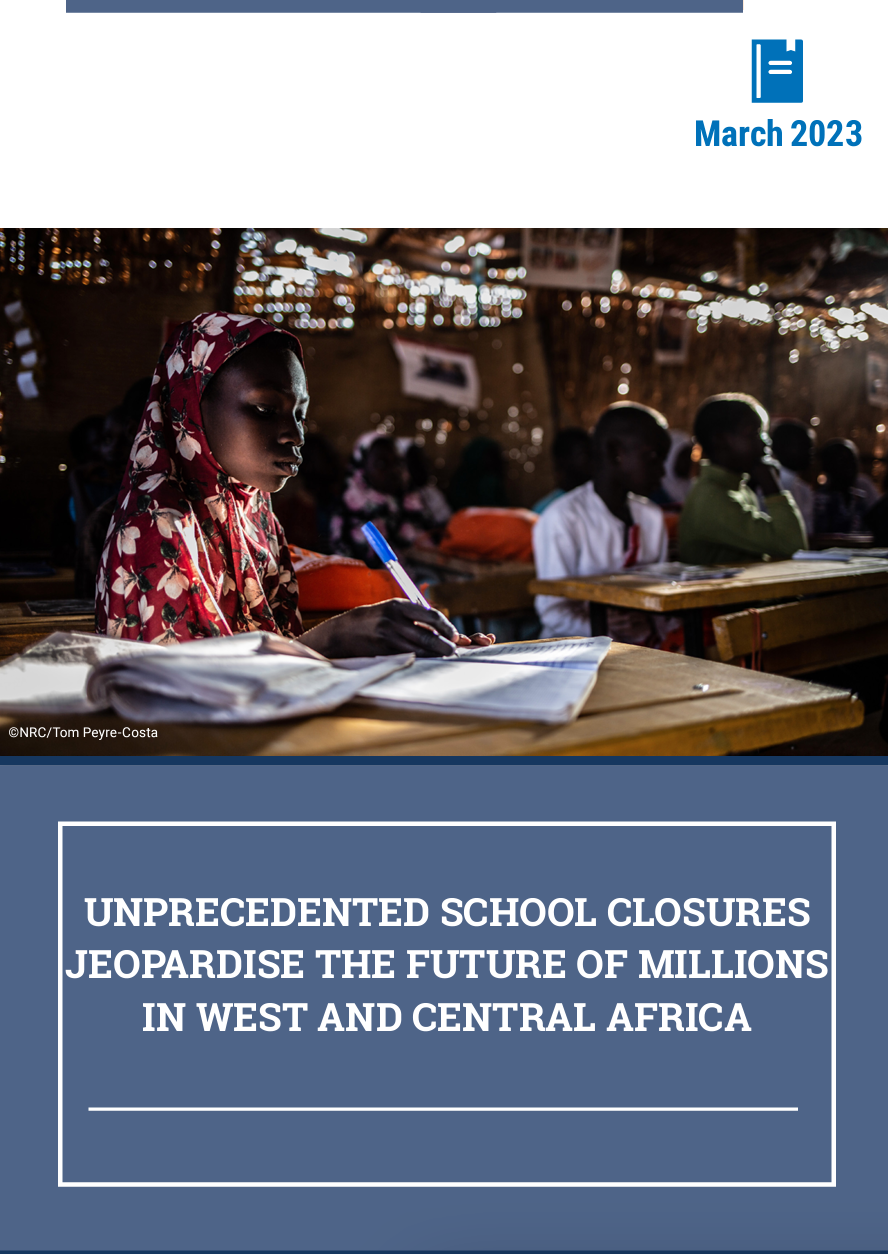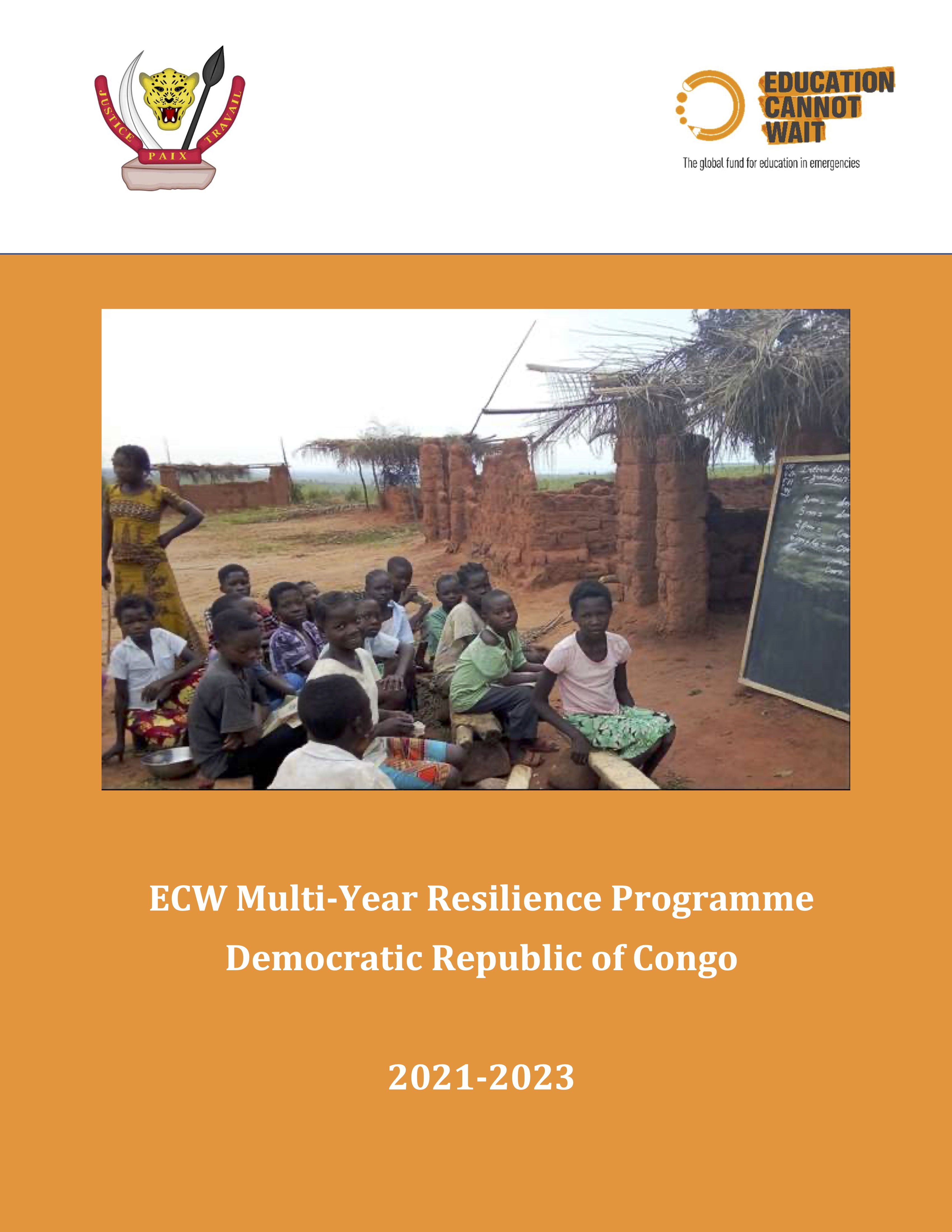ECW in Democratic Republic of the Congo
The multidimensional humanitarian crisis in the Democratic Republic of the Congo (DRC) has resulted in low enrolment rates and discrimination along gender lines in schools throughout the country. Children and adolescents face many risks, including abuse and exploitation, forced recruitment by armed groups, child labour, child marriage, gender-based violence, food insecurity and poverty. For students who are fortunate enough to attend school, the quality of education is impacted by over-crowded classrooms and low budgets. Education Cannot Wait (ECW) supports partners to establish holistic, safe, and inclusive learning environments through local action committees, school nutrition programmes, reintegration of out-of-school adolescents, psychosocial support services and training for educators.

Investments
Financial Information
National Counterparts
Ministry of Education, Global Education Cluster
Results
Additional Results
- Number of children and adolescents receiving cash transfers for education: 25,397
- Number of adolescents girls receiving menstrual care kits, female hygiene kits or similar assistance: 3,308
COVID-19 Results
Programme Info
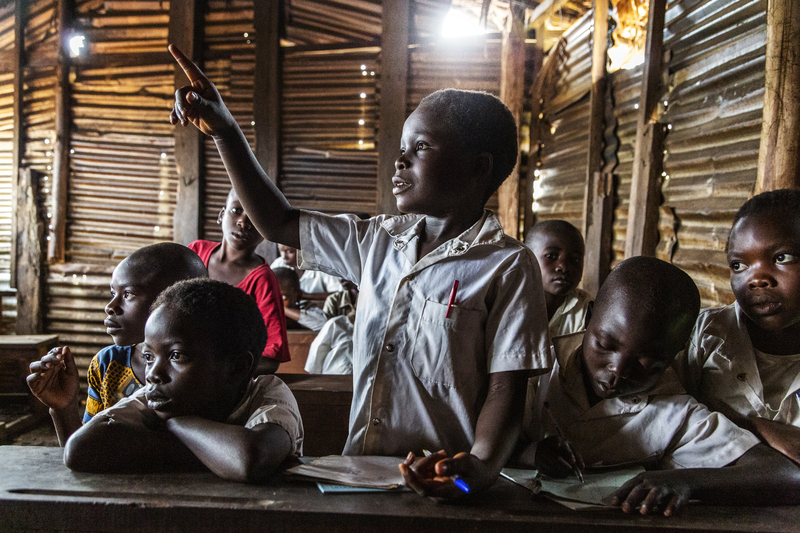
The DRC has a poor educational infrastructure, which was further weakened by the introduction of free primary education. This has led to overcrowded classrooms, teacher shortages and caused the depletion of education budgets. These challenges have been compounded by attacks on schools by armed groups. Prior to COVID-19, approximately 15 to 23 million school-age children and adolescents were out of school. The pandemic drastically increased this number, and while some children have returned to the classroom, many have not nor ever will.
Children and adolescents in the DRC are exposed to many risks, including abuse and exploitation, forced recruitment by armed groups, child labour, child marriage and gender-based violence. Refugees and IDPs face additional barriers, including food insecurity and malnutrition. High poverty rates force many children to drop out of school. Oftentimes, families are forced to choose which of their children can attend school. Consequently, the education of boys tends to be prioritised while the education of girls is neglected. For students who can attend school, the quality of education is a concern as many students do not master the fundamentals in reading and mathematics.
To address the complex context within the DRC and promote long-term resilience and development, the multi-year resilience programme (MYRP) takes a strong humanitarian focus and cross-cutting approach to build a holistic and inclusive system. The programme supports students through scholarships for disadvantaged students; support for educators; after-school programming; psychosocial support; school meals and localised committees to advance equality and inclusion.
Programme Components
- Addressing malnutrition. Schools are used as platforms for health and nutritional screening. Students are provided with school meals and learn about nutrition. They also learn how to grow food in a garden and are provided opportunities to create vegetable gardens in their communities.
- Combating gender-based violence. Committees are established in schools to monitor gender-based violence and to promote physical and emotional well-being. Grantees work with school management and leadership to develop codes of conduct as a mechanism to address gender-based violence.
- Improving student learning. Safe learning spaces are constructed for formal and non-formal education. Reading is prioritised through the establishment of mini libraries and reading programmes. Schools, students and teachers are provided with learning materials and recreational kits, as well as hygiene and sanitation kits.
- Promoting life skills and student leadership. The focus is on life skills along with ‘second-chance’ schooling opportunities through remedial education, distance education and accelerated learning programmes for students who have dropped out or never attended school. Student-led clubs reflecting common interests – such as peace building, child protection and gender – are established in learning institutions, with fun and informative activities.
- Providing protection and inclusion in communities. School management committees and parent committees are trained to increase accountability, improve learning and enhance civic engagement. These committees support the monitoring of school performance; ensuring gender equality; and the protection of children's rights.
- Providing psychosocial support. Female volunteers are trained in psychosocial support and child safeguarding. They act as menstrual hygiene management (MHM) focal points, serving as role models of female leadership in educational settings.
For more information on ECW's work in the Democratic Republic of the Congo, please contact Country Lead Graham Lang (glang@un-ecw.org) and Programme Manager Fatou Niang (fniang@unicef.org).

